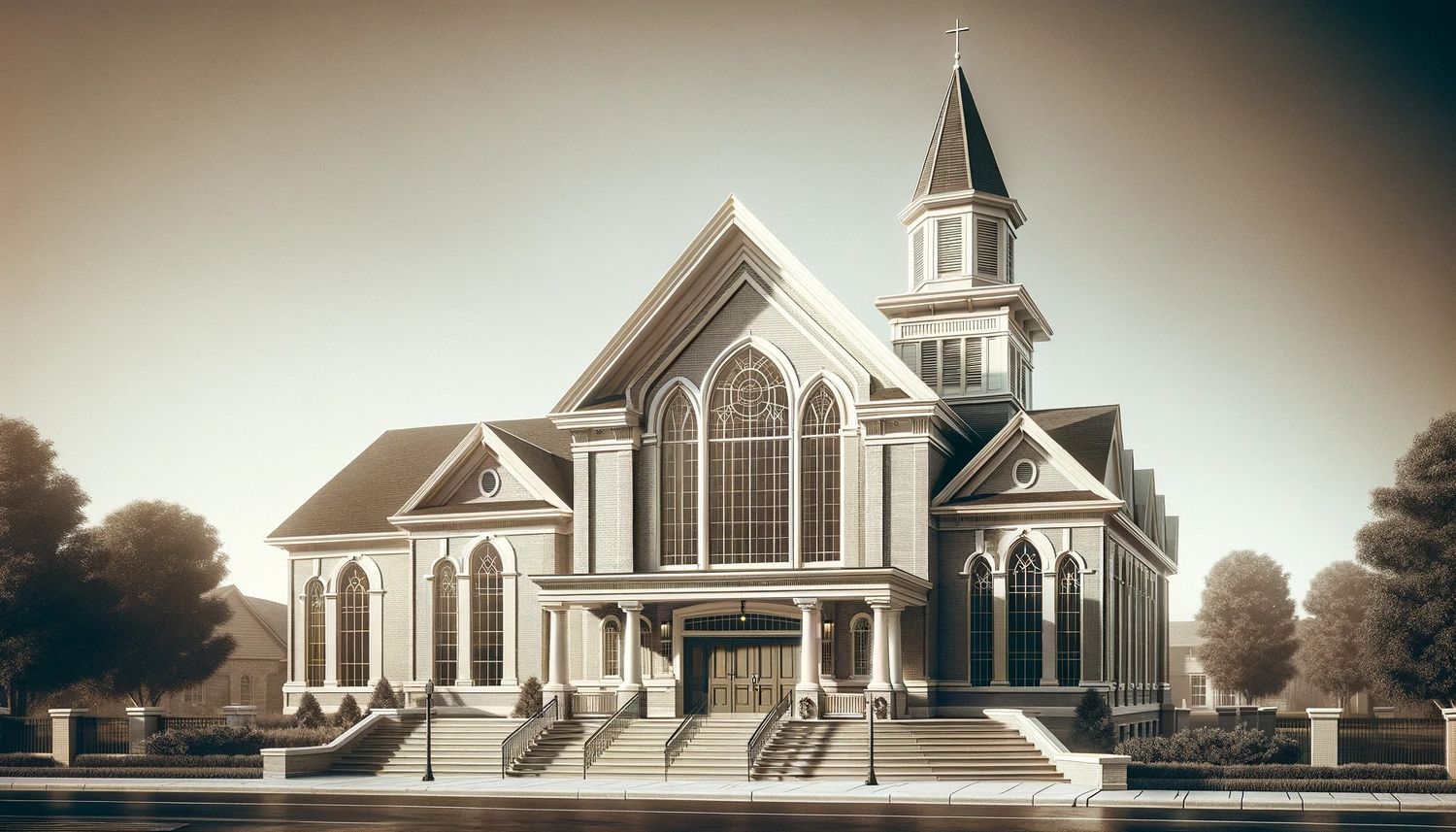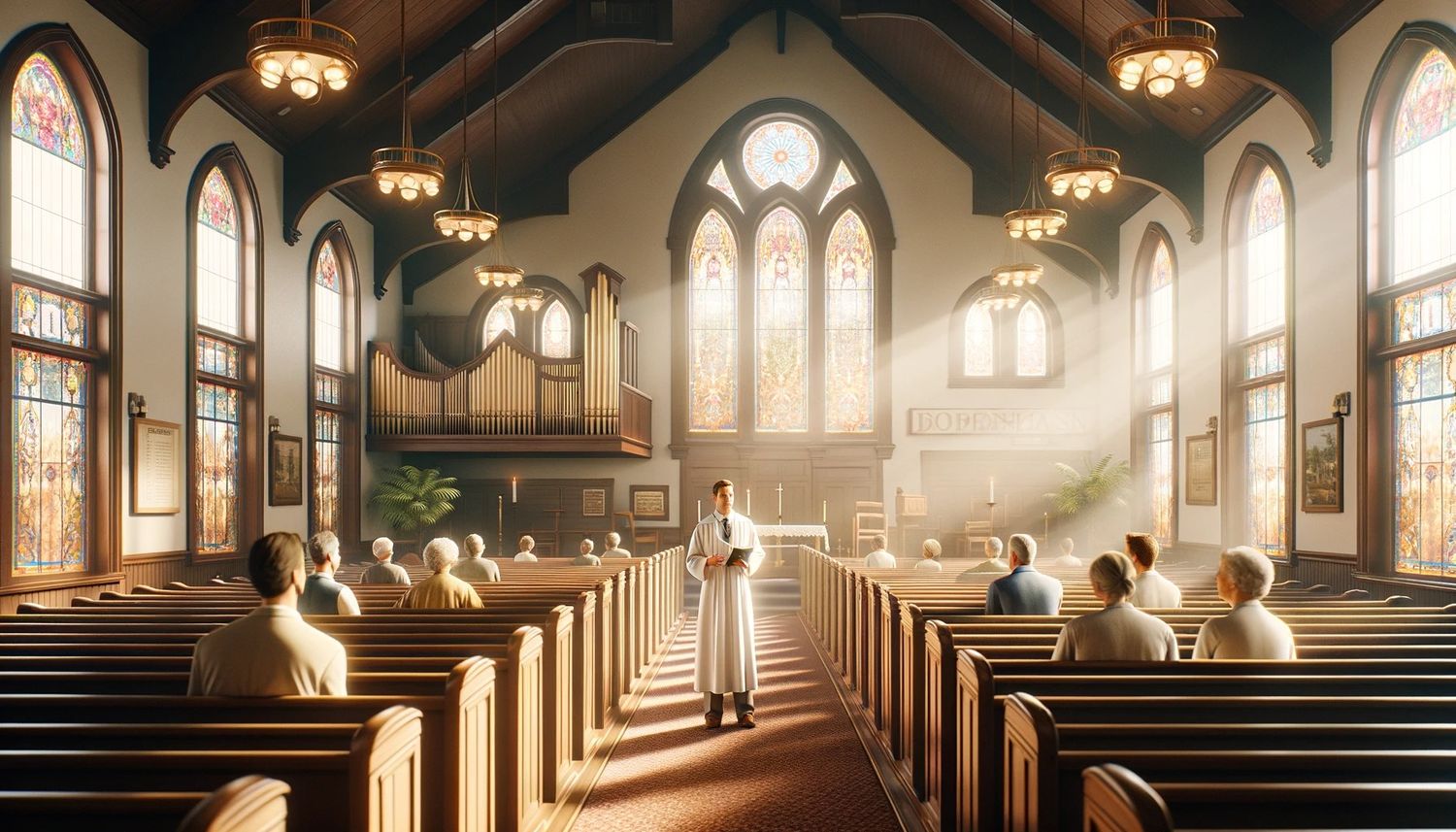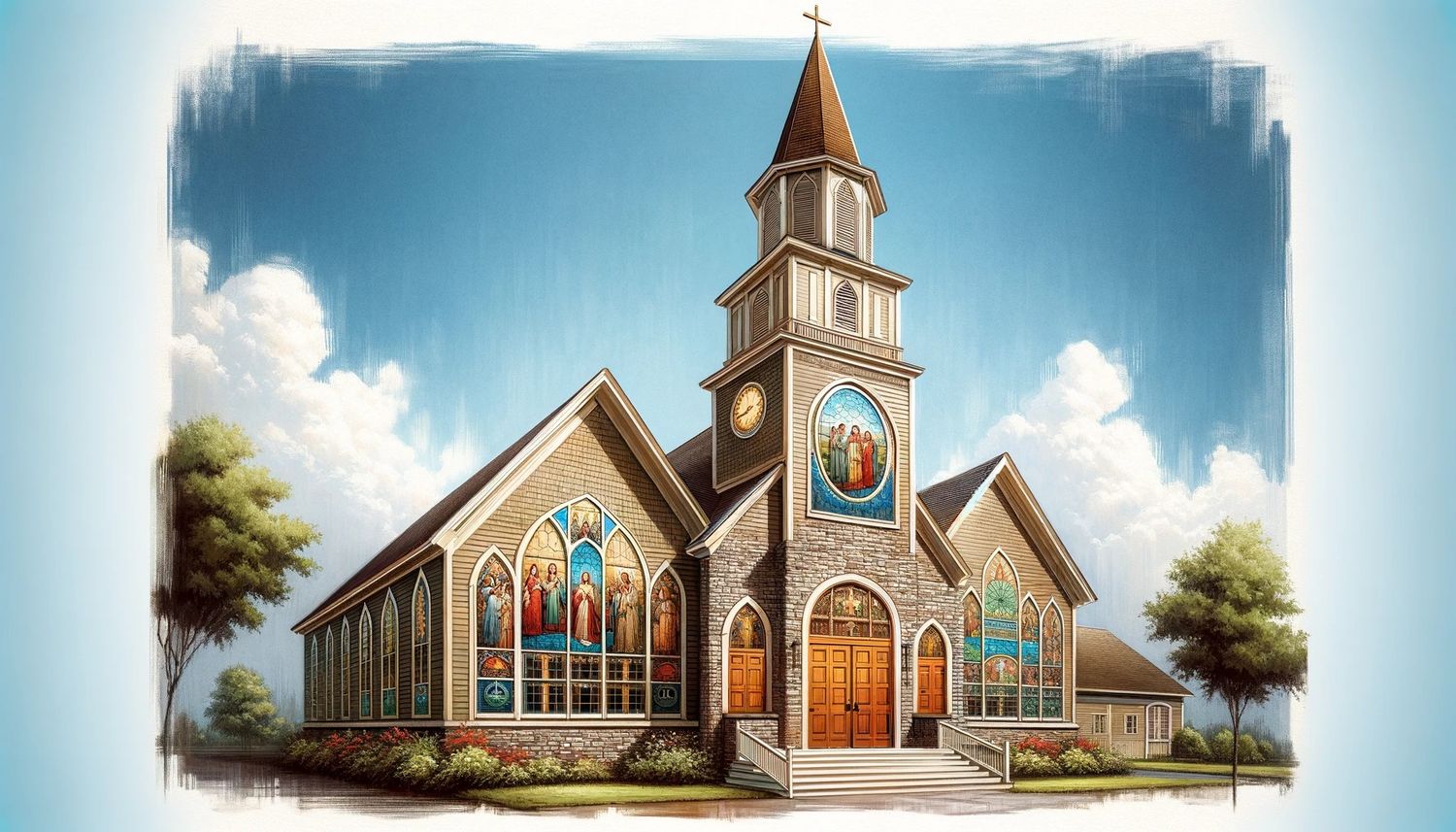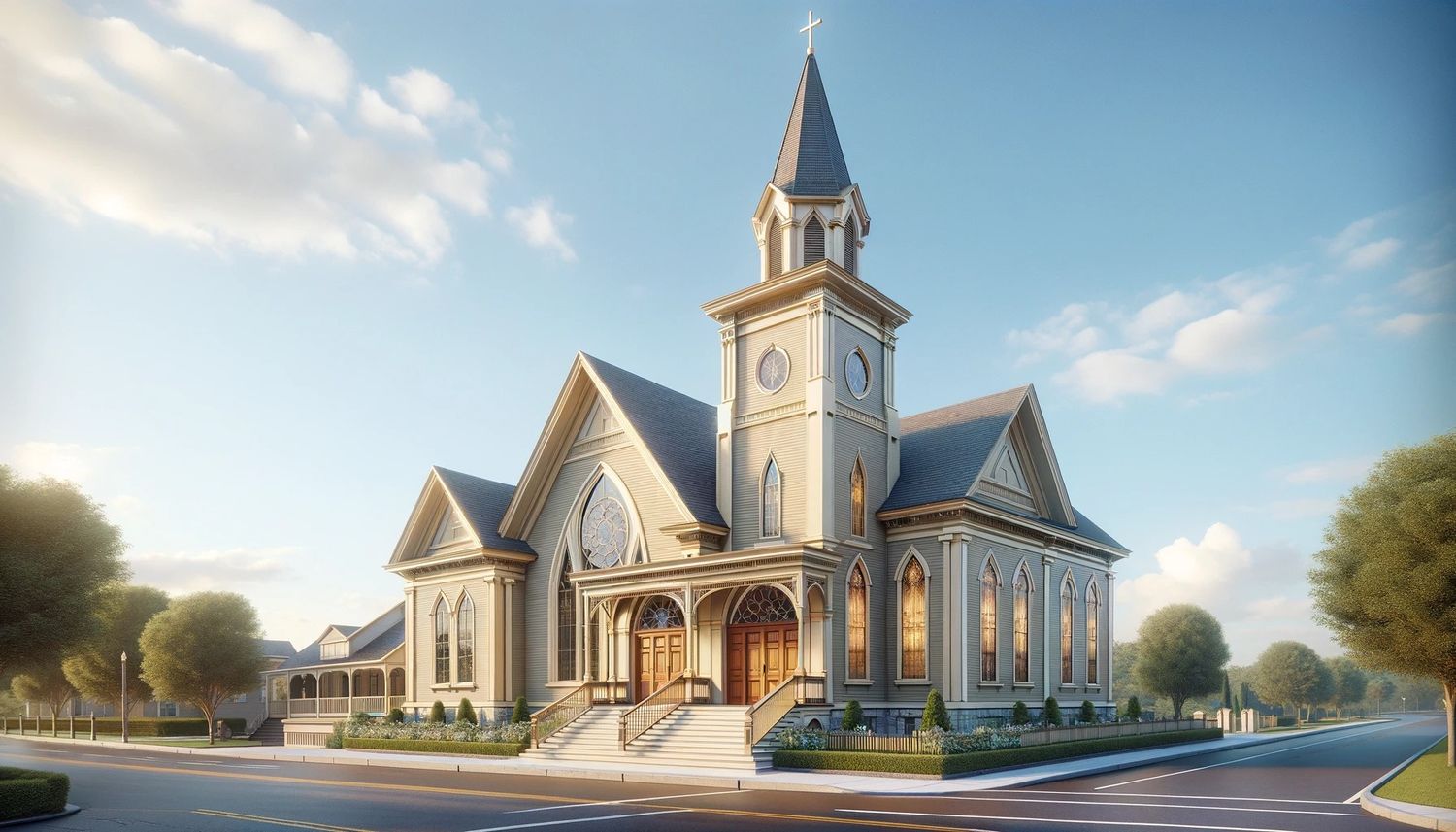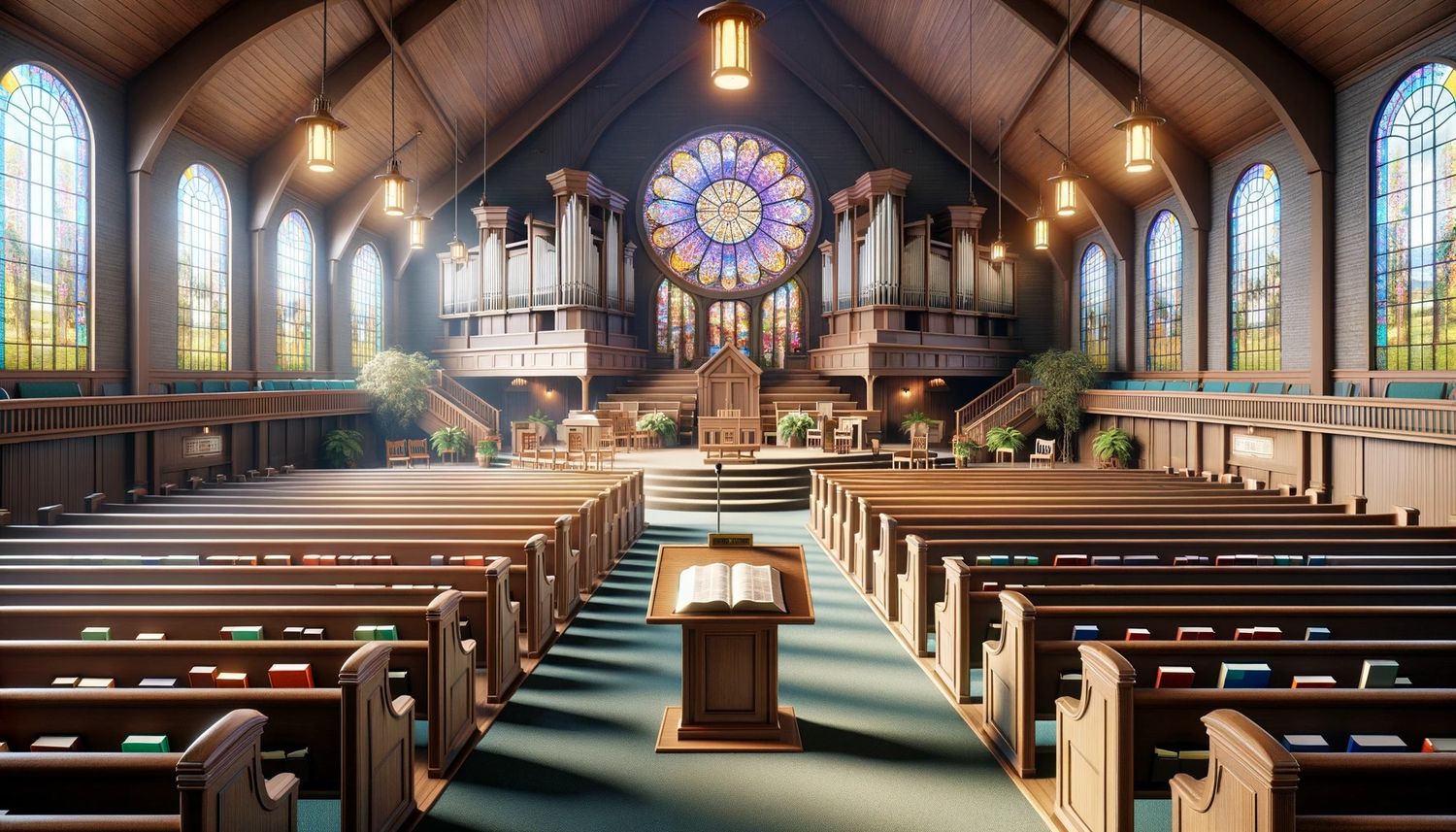Home>Theology and Spirituality>What Is An Elder In A Baptist Church?


Theology and Spirituality
What Is An Elder In A Baptist Church?
Published: February 23, 2024
Peter Smith, Editorial Director at Christian.net, combines deep insights into faith, politics, and culture to lead content creation that resonates widely. Awarded for his contributions to religious discourse, he previously headed a major organization for religious communicators, enhancing dialogue on faith's societal impacts.
Learn about the role and responsibilities of elders in a Baptist church, and their significance in theology and spirituality. Explore the biblical and practical aspects of this important leadership position.
(Many of the links in this article redirect to a specific reviewed product. Your purchase of these products through affiliate links helps to generate commission for Christian.net, at no extra cost. Learn more)
Table of Contents
Introduction
In the Baptist tradition, the role of an elder holds significant importance within the church community. An elder is not merely an individual with advanced age, but rather someone who embodies wisdom, spiritual maturity, and exemplary leadership qualities. The concept of eldership is deeply rooted in the New Testament, where the apostles appointed elders to oversee and guide the early Christian communities. This tradition has been upheld and adapted by Baptist churches, reflecting a commitment to spiritual guidance and pastoral care.
The position of an elder is characterized by a profound sense of responsibility and servanthood. Elders are entrusted with the spiritual well-being of the congregation, serving as shepherds who nurture and guide the flock. Their role extends beyond administrative duties; it encompasses a genuine dedication to fostering spiritual growth, providing pastoral support, and upholding the doctrinal integrity of the church.
The significance of eldership is underscored by the biblical qualifications and responsibilities outlined for those who hold this esteemed position. These criteria serve as a benchmark for evaluating the suitability of individuals to serve as elders, emphasizing the importance of moral integrity, sound doctrine, and a proven track record of exemplary character.
As we delve into the qualifications, responsibilities, selection, and decision-making role of elders within the Baptist church, it becomes evident that the position of an elder is not merely a title, but a sacred calling that demands unwavering commitment, humility, and a deep reverence for God's Word. Through this exploration, we gain insight into the pivotal role that elders play in shepherding the congregation, fostering spiritual growth, and upholding the foundational principles of the Baptist faith.
Read more: Why Do Southern Baptist Not Have Elders
Qualifications of an Elder
The qualifications of an elder in a Baptist church are derived from the biblical standards set forth in the New Testament, particularly in the letters of Paul to Timothy and Titus. These criteria serve as a comprehensive framework for assessing the suitability of individuals to assume the role of an elder within the church community. The following qualifications are integral to the selection and appointment of elders, reflecting the high standards of character, spiritual maturity, and leadership that are expected of those who hold this esteemed position:
-
Moral Integrity: An elder must be above reproach, demonstrating an irreproachable character marked by integrity, honesty, and moral uprightness. This criterion emphasizes the importance of personal conduct that aligns with the ethical standards set forth in the Scriptures.
-
Spiritual Maturity: Elders are required to exhibit a deep and abiding faith, characterized by spiritual maturity, wisdom, and a profound understanding of God's Word. Their lives should exemplify a commitment to ongoing spiritual growth and a steadfast devotion to living out the principles of the Christian faith.
-
Sound Doctrine: An elder must be firmly grounded in sound doctrine, possessing a thorough understanding of the Scriptures and the ability to effectively teach and defend the faith. This criterion underscores the importance of doctrinal fidelity and the ability to uphold the foundational beliefs of the Baptist tradition.
-
Exemplary Family Life: The qualifications for elders include the demonstration of exemplary leadership within the family context. This encompasses being a faithful spouse, nurturing children with wisdom and love, and maintaining a household that reflects the values of the Christian faith.
-
Good Reputation: Elders are expected to have a good reputation both within the church community and the broader society. This entails being well-regarded for their conduct, interactions, and contributions, thereby serving as positive role models for others to emulate.
-
Humility and Servanthood: The qualities of humility, servanthood, and a genuine heart for pastoral care are essential attributes for those aspiring to the role of an elder. This criterion emphasizes the importance of a servant-leadership mindset, characterized by a willingness to sacrificially serve and care for the spiritual needs of the congregation.
These qualifications collectively reflect the high standards of character, spirituality, and leadership that are expected of individuals who are called to serve as elders within the Baptist church. By adhering to these biblical criteria, the church ensures that those entrusted with the responsibilities of eldership embody the qualities necessary to effectively shepherd, guide, and nurture the faith community.
Responsibilities of an Elder
The responsibilities of an elder in a Baptist church encompass a multifaceted role that revolves around spiritual leadership, pastoral care, and the overall well-being of the congregation. These responsibilities are deeply rooted in the biblical principles of shepherding, servanthood, and exemplary leadership, reflecting a commitment to nurturing the spiritual growth and welfare of the church community.
-
Spiritual Oversight: Elders are entrusted with the spiritual oversight of the congregation, providing guidance, support, and pastoral care to individuals and families within the church. This involves shepherding the flock, offering spiritual counsel, and fostering an environment conducive to spiritual growth and maturity.
-
Doctrinal Integrity: Upholding the doctrinal integrity of the church is a fundamental responsibility of elders. They are tasked with safeguarding the biblical teachings, ensuring that the congregation remains grounded in sound doctrine, and addressing any doctrinal concerns or theological questions that may arise.
-
Leadership and Mentorship: Elders serve as spiritual leaders and mentors, setting an example for others to follow. They are called to exemplify Christlike character, provide mentorship to emerging leaders, and equip the church community for effective ministry and service.
-
Prayer and Intercession: Elders are called to be fervent in prayer, interceding on behalf of the congregation and seeking God's guidance and wisdom for the church's direction and spiritual needs. Their commitment to prayer underpins the spiritual vitality and resilience of the church community.
-
Conflict Resolution and Reconciliation: In times of conflict or discord, elders play a crucial role in facilitating reconciliation, promoting unity, and fostering a spirit of forgiveness and restoration within the church. Their wisdom and discernment are instrumental in addressing interpersonal conflicts and promoting a culture of grace and reconciliation.
-
Pastoral Support and Care: Providing pastoral support and care to the congregation is a central responsibility of elders. They offer comfort, encouragement, and practical assistance to those in need, demonstrating a compassionate and caring attitude reflective of Christ's love for His people.
-
Accountability and Stewardship: Elders are entrusted with the stewardship of the church's resources, both spiritual and material. They exercise accountability in overseeing the affairs of the church, ensuring transparency, integrity, and responsible stewardship of the resources entrusted to the church.
-
Teaching and Discipleship: Elders are called to teach and disciple believers, equipping them with the knowledge and understanding of God's Word. Through sound teaching, they nurture spiritual growth, deepen biblical understanding, and empower individuals to live out their faith in practical ways.
By faithfully fulfilling these responsibilities, elders play a pivotal role in shepherding the congregation, fostering spiritual growth, and upholding the foundational principles of the Baptist faith. Their unwavering commitment to these responsibilities reflects a deep sense of servanthood, dedication, and love for the church community.
Selection and Appointment of Elders
The process of selecting and appointing elders in a Baptist church is a deliberate and prayerful undertaking that reflects the gravity and significance of the elder's role within the faith community. This process is guided by biblical principles and the collective discernment of the church leadership and congregation, ensuring that those chosen for eldership exemplify the qualifications and characteristics outlined in the Scriptures.
The selection of elders typically begins with a period of prayerful consideration and discernment within the church community. This may involve seeking the guidance of the Holy Spirit, engaging in earnest prayer, and fostering an atmosphere of spiritual sensitivity to discern God's leading in identifying individuals who embody the qualities of exemplary leadership, spiritual maturity, and moral integrity.
As part of the selection process, the existing body of elders and church leadership may engage in a thorough evaluation of potential candidates, assessing their adherence to the biblical qualifications for eldership and their demonstrated commitment to serving the church community. This evaluation may encompass an examination of the candidate's character, doctrinal understanding, leadership capabilities, and their track record of service and involvement within the church.
Furthermore, the input and feedback of the congregation are often sought during this process, allowing the church members to provide insights and observations regarding the character, conduct, and spiritual impact of the potential candidates. This inclusive approach fosters a sense of communal discernment and ensures that the selection of elders reflects the collective affirmation and support of the church body.
Upon the identification of suitable candidates, the process moves towards their formal appointment as elders. This may involve a period of mentoring, training, and equipping to prepare the candidates for the responsibilities and challenges associated with eldership. Additionally, the candidates may undergo a period of affirmation and confirmation by the congregation, allowing the church members to express their support and affirmation of the individuals being considered for eldership.
Ultimately, the appointment of elders is a solemn and celebratory occasion within the life of the church, marked by a sense of reverence, gratitude, and the recognition of God's providential guidance in raising up individuals to serve in this capacity. The formal installation of elders often involves a public commissioning ceremony, during which the newly appointed elders are entrusted with the responsibilities of spiritual leadership, pastoral care, and the stewardship of the church's well-being.
Through this intentional and prayerful process of selection and appointment, Baptist churches ensure that those called to serve as elders are not only qualified according to biblical standards but also possess the trust, affirmation, and support of the church community, thereby reinforcing the unity and collective commitment to the spiritual oversight and flourishing of the congregation.
Role of Elders in Decision Making
The role of elders in decision making within a Baptist church is characterized by a collaborative and prayerful approach that reflects the collective wisdom, discernment, and spiritual guidance of the elder body. Elders are entrusted with the weighty responsibility of providing spiritual leadership, shepherding the congregation, and actively participating in the discernment and decision-making processes that impact the life and direction of the church.
Elders play a pivotal role in discerning God's will and seeking His guidance in matters that affect the spiritual welfare and mission of the church. Their involvement in decision making is rooted in a deep commitment to upholding the biblical principles, doctrinal integrity, and the overall well-being of the church community. This entails a comprehensive engagement in various facets of decision making, including matters related to spiritual direction, doctrinal adherence, pastoral care, and the stewardship of resources.
The decision-making process often involves deliberate prayer, seeking the guidance of the Holy Spirit, and engaging in thorough deliberation and discussion among the elder body. This collaborative approach fosters a unified and Spirit-led discernment, ensuring that decisions are made with a deep reverence for God's leading and the best interests of the church community.
Furthermore, elders provide a source of wisdom, counsel, and spiritual insight in navigating complex issues, addressing challenges, and discerning the most prudent course of action. Their collective discernment and spiritual maturity serve as a guiding force in ensuring that decisions align with the biblical principles, the mission of the church, and the spiritual welfare of the congregation.
In addition to their spiritual oversight, elders often participate in decision making related to pastoral appointments, major initiatives, doctrinal matters, and significant undertakings that impact the church's mission and ministry. Their input and discernment contribute to fostering a culture of accountability, transparency, and spiritual discernment within the church's governance and decision-making processes.
Ultimately, the role of elders in decision making reflects a deep commitment to shepherding the flock, upholding the foundational principles of the faith, and seeking God's wisdom in guiding the church's direction and mission. Through their active involvement in decision making, elders exemplify servant leadership, spiritual discernment, and a steadfast dedication to nurturing the spiritual vitality and well-being of the church community.
Read more: What Are Baptist Churches
Conclusion
In conclusion, the role of an elder in a Baptist church is one of profound significance, embodying the timeless principles of spiritual leadership, pastoral care, and exemplary servanthood. The qualifications, responsibilities, selection, and decision-making role of elders collectively underscore the pivotal importance of this esteemed position within the church community.
The biblical qualifications for eldership serve as a timeless standard, emphasizing the indispensable qualities of moral integrity, spiritual maturity, sound doctrine, exemplary family life, good reputation, and humility. These qualifications reflect the high standards of character and spirituality expected of those entrusted with the responsibilities of eldership, ensuring that the church is shepherded by individuals who exemplify the virtues of Christlike leadership and servanthood.
Furthermore, the responsibilities of elders encompass a multifaceted role that encompasses spiritual oversight, doctrinal integrity, leadership, mentorship, pastoral care, and stewardship. Through their unwavering commitment to these responsibilities, elders play a pivotal role in nurturing the spiritual growth, well-being, and doctrinal fidelity of the church community, reflecting a deep sense of dedication, compassion, and love for the congregation.
The process of selecting and appointing elders is marked by intentional discernment, prayerful consideration, and the collective affirmation of the church community. This inclusive approach ensures that those called to serve as elders not only meet the biblical qualifications but also possess the trust, support, and affirmation of the congregation, thereby reinforcing the unity and collective commitment to the spiritual oversight and flourishing of the church.
Moreover, the role of elders in decision making reflects a collaborative, prayerful, and spiritually discerning approach that upholds the biblical principles, doctrinal integrity, and the spiritual welfare of the congregation. Their involvement in decision making ensures that the church is guided by the collective wisdom, discernment, and spiritual insight of the elder body, fostering a culture of accountability, transparency, and spiritual discernment within the church's governance and decision-making processes.
In essence, the position of an elder in a Baptist church is not merely a title, but a sacred calling that demands unwavering commitment, humility, and a deep reverence for God's Word. Through their exemplary leadership, pastoral care, and active involvement in decision making, elders play a pivotal role in shepherding the congregation, fostering spiritual growth, and upholding the foundational principles of the Baptist faith. Their dedication and servanthood exemplify the timeless virtues of spiritual leadership and the enduring legacy of eldership within the Baptist tradition.




